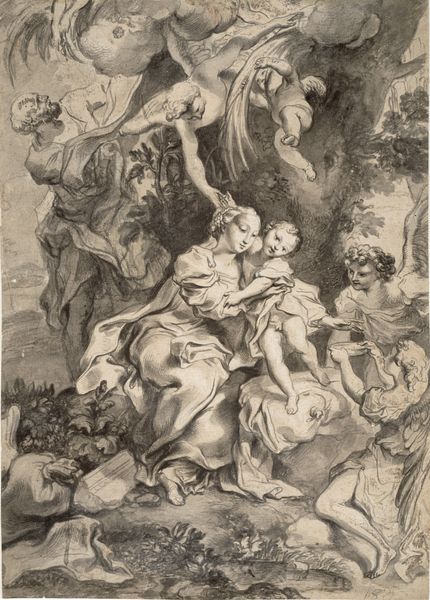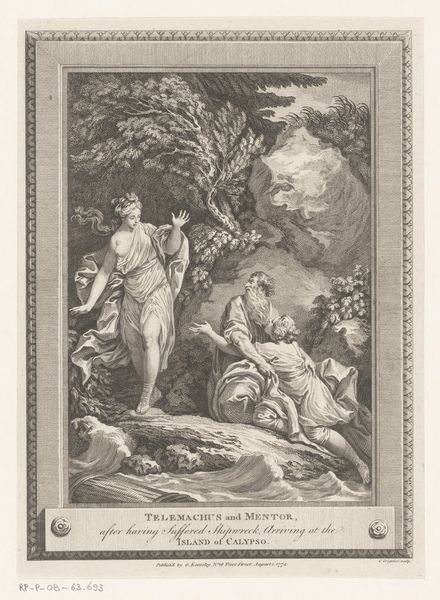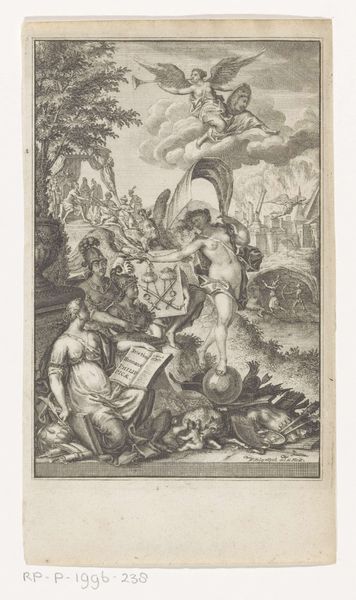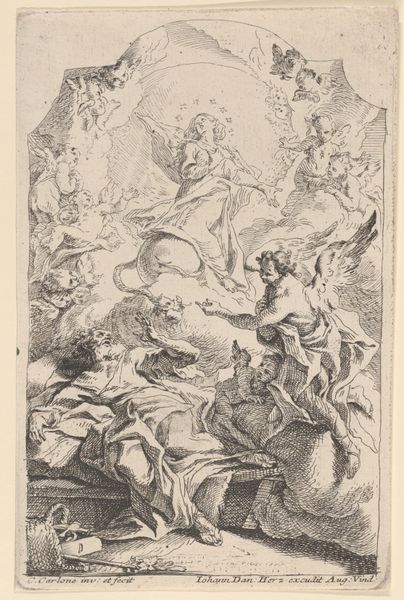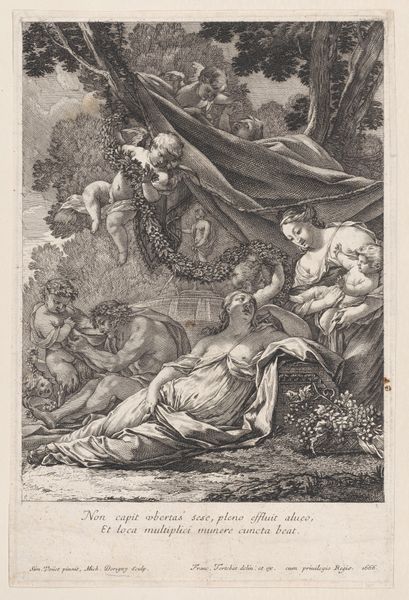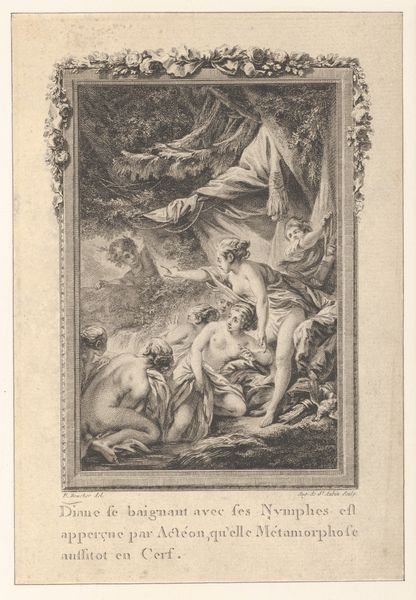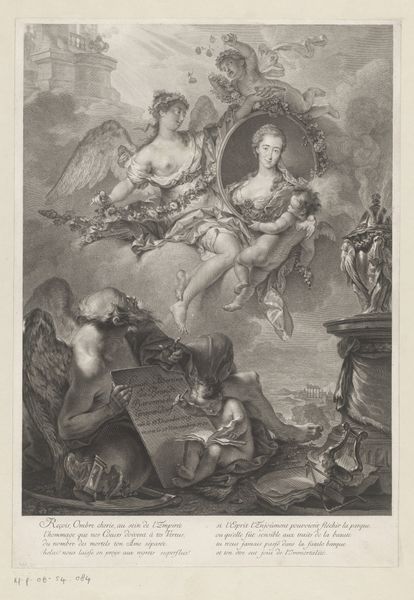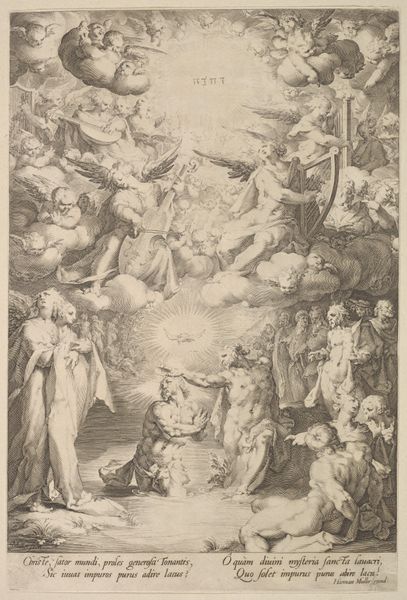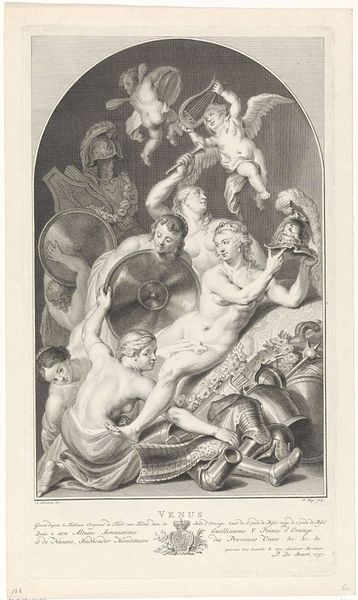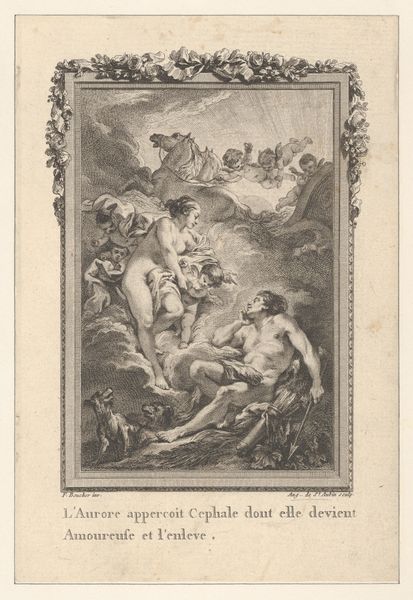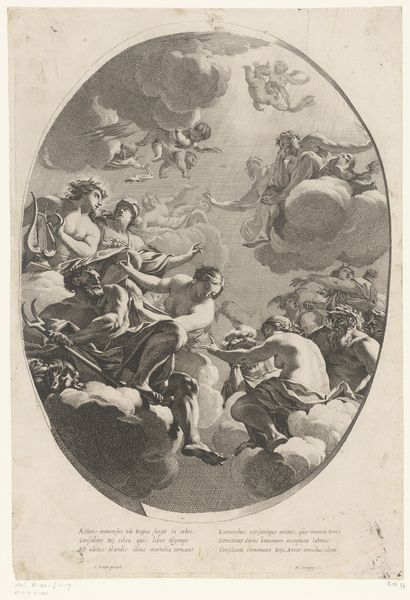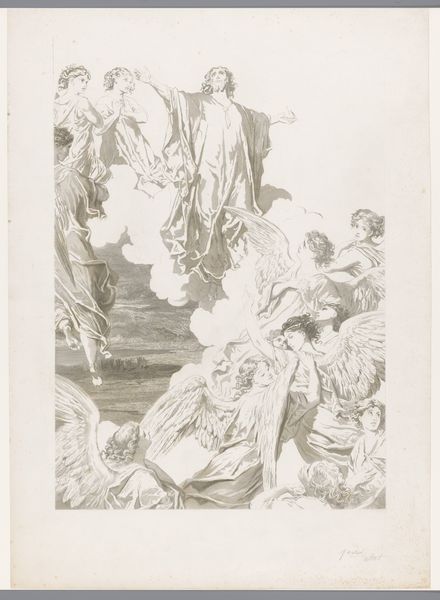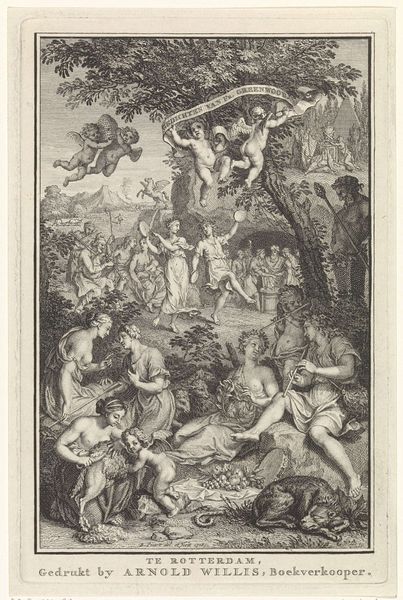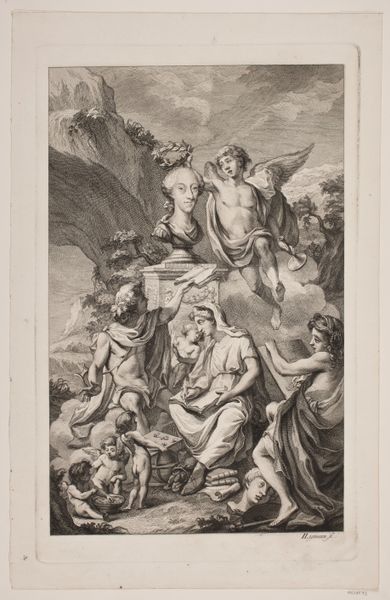
engraving
#
portrait
#
allegory
#
baroque
#
old engraving style
#
history-painting
#
engraving
Dimensions: height 354 mm, width 227 mm
Copyright: Rijks Museum: Open Domain
Editor: This engraving, "Geschiedenis gelauwerd door Faam," or "History Laureled by Fame," created in 1734 by François Morellon La Cave, has such an intense allegorical mood. It seems like such a crowded scene filled with symbolic figures! What do you see in this piece, from an art history perspective? Curator: Well, immediately, I am drawn to the baroque excess. This engraving reveals the power structures embedded within history-writing. The central female figure, History, is being crowned by Fame, signifying whose stories get remembered and celebrated. But note who *isn’t* represented. Where are the voices of the marginalized? This becomes an allegory of whose history *counts*. Editor: That's a good point; most of the people depicted here seem to be wealthy Europeans, if allegorical. What about the male figure with the scythe? Curator: That's Chronos, or Time. Time is shown destroying texts even as History attempts to record events. Think of this in the context of the 18th century—the rise of the printing press and anxieties surrounding who controls the narrative. Who decides what is archived and remembered, and who is intentionally forgotten? Editor: So the act of selecting what constitutes “history” is itself a political act. I can definitely see that point now! Curator: Precisely. And within this lens, even celebrating "history" demands that we investigate it as a subjective act. To create real understanding we need to ask who benefits from a specific historical narrative, and what agendas may be hidden beneath these grandiose allegories? Editor: I see that even engravings like this offer opportunities to delve into power dynamics and marginalized narratives! It provides food for thought about whose voices shape history, or are erased from it.
Comments
No comments
Be the first to comment and join the conversation on the ultimate creative platform.
